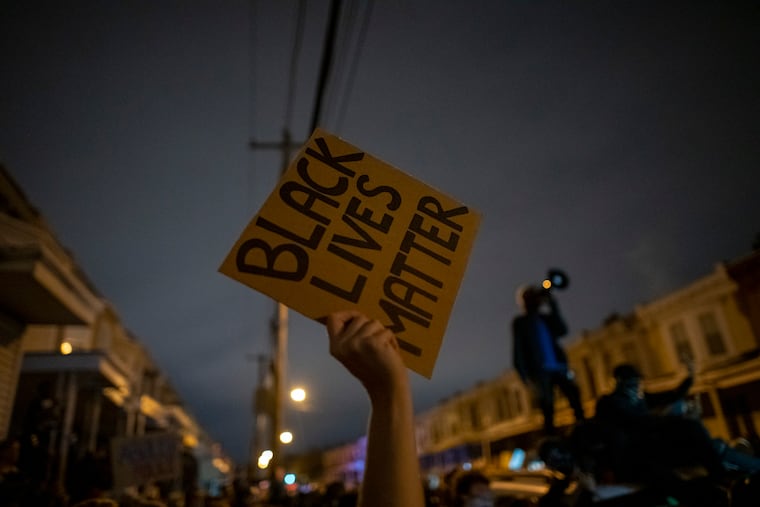Too many Black lives were cut short in Philadelphia this Black History Month | Editorial
While many are more comfortable saying unequivocally that Black lives matter, the lives of so many Black Americans are still being cut far too short.

History will not look back kindly at Black History Month 2022.
Instead of taking the opportunity to teach about America’s racist and violent past toward African Americans, school districts across the country waged campaigns to ban books that told history as it was.
Instead of teaching about the fateful moment in 1619 when the first ship carrying Black human beings as commercial cargo arrived on the shores of Virginia, Republican-led state legislatures pushed forward with proposals that would ensure that stories about the nation’s original sin would never be honestly told.
From the beginning of the year and through the middle of Black History Month, the FBI reported at least 57 bomb threats to historically Black colleges and universities. In South Philadelphia just last week, a Black-owned deli was vandalized with white supremacist graffiti.
» READ MORE: A defining moment: Six Philadelphians reflect on Black History Month and their hopes for the future | Opinion
It was during Black History Month that right-leaning media and Republican lawmakers attempted to stir up a moral panic about crack pipes that rehashed some of the old racist tropes of Black people, drug use, and criminality.
And while some white segments of American society are getting more comfortable stating unequivocally that Black lives matter, the lives of so many Black Americans are still being cut far too short.
In the first 22 days of February, 88 Black people in Philadelphia were struck by a bullet — 18 died. Nearly two-thirds of the 289 COVID-19 deaths that the city’s Department of Public Health reported in the first 24 days of the month, which include deaths that occurred before February and doesn’t yet include death data that is lagging, were of Black Philadelphians.
And the overdose death rate for Black Philadelphians continues to increase while the rate for their white counterparts declines.
Philadelphia remains one of the most segregated cities in America — an especially horrific reality because the life expectancy in neighborhoods separated by a few miles could vary by as much as two decades.
» READ MORE: Black History Month’s lessons should focus more on tying the sins of the past to the ills of the present | Opinion
The attacks on American history generally, and Black history specifically, can’t be separated from the persistence of an unequal and unjust reality for Black people. Efforts to sanitize U.S. history, including those efforts here in Pennsylvania, must be beaten back. When attacks on Black history occur year-round, the focus on an honest accounting of Black history deserves more than the shortest month of the year.
We have no hope for a future devoid of white supremacist structures unless we understand the past that led us here — but it is just as important for Philadelphia to improve the material conditions of its Black residents in the present.
Soon, City Council and Mayor Jim Kenney will start the process of coming up with next year’s budget. If, as a city, Philadelphia truly believes that Black lives matter, the budget should attack Black mortality head-on. In every budget hearing, every department should answer the question: How will your budget protect the lives of Black Philadelphians, who are dying far too soon? This is the north star that can set us on a path to address the historic wrongs that so many want to prevent from ever being discussed.